Podcast: Download
Subscribe: Apple Podcasts | RSS
 The Freedom Journal… sounds ambitious right?
The Freedom Journal… sounds ambitious right?
Well, what if I told you that I’ve discovered profound memory benefits from journaling for language learning, including boosts in physical and emotional wellbeing?
Benefits that definitely deserve the word “freedom.”
That’s what I am going to tell you about.
And it’s all happening right now in this step-by-step guide. This page will show you how to use The Freedom Journal to experience multiple levels of mental freedom while using it to learn a language with consistency and confidence.
The best part?
You don’t have to journal blindly.
You don’t have to start from scratch or wonder exactly how you’re going to chart your path towards improved fluency.
You just have to:
- Click play on the podcast above. John Lee Dumas himself is on this episode of the MMM Podcast to help explain how this amazing tool came into existence.
- Grab yourself your very own Freedom Journal (ideally in print for the fullest brain benefits).
Then, have the language you want to learn…
A couple of Memory Palaces…
5-10 minutes in the morning, another 5-10 in the evening…
And you’re ready to experience brain benefits and fluency like never before.
Ready?
Let’s go!
A (Very) Brief History Of Journaling
You know what journaling is, right?
Your words. About you. On paper.
Or written inside a digital document. Take your pick.
More carefully defined:
A journal (or diary) is a place you store entries on a daily or near-daily basis.
It is voluntary, helps you put problems to rest and keep yourself moving forward.
You can journal to maintain flow, learn more about yourself and use the Magnetic Memory Method better as you go.
Or, like the Roman Emperor Marcus Aurelius wrote in Τὰ εἰς ἑαυτόν (To Myself), you can journal purely to capture your thoughts.
These days, “To Myself’ is known as Meditations. Aurelius wrote it in the second half of the 2nd century AD and, even though this book started as his journal, it is still a bestseller today.
Here’s the important point:
Journaling is powerful and the practice has stood the test of time.
Therapeutic Journaling And How
It Can Help You Learn A Language
Did you know that in the 1980s, James Pennabaker’s expressive writing paradigm opened scientists onto a whole new world of understanding what makes journaling so good for your health?
He started by looking at journaling as a tool for helping people deal with trauma.
But soon after that, dozens and soon hundreds of studies started to appear showing similar effects.
A lot of them are gathered up and synthesized in one of my favorite books of all time, 59 Seconds: Change Your Life in Under a Minute.
Sounds like hype, right?
It isn’t.
Wiseman is one of the best science writers of our era and if you want the hard data on why journaling, ideally by hand on paper, works so much magic, you’ll want to read 59 Seconds.
Here’s why all this matters:
Journaling Makes You Feel Better And Remember More
Feeling better literally helps you remember more because the absence of pain is an incredible way to increase your focus and concentration.
And that is a huge help when you’re learning a language.
That said, if you don’t feel frustrated or discouraged, then maybe you don’t need journaling.
But before you decide, check out these…
3 Warning Signs That Scream You Need Journaling To Succeed With Language Learning
We’ve talked before about these 15 Reasons Why Learning A Foreign Language Is Good For Your Brain.
And the reason you need at least bilingualism in your life is simple:
Learning a language is excellent for the resilience of the white and grey matter in your brain.
The ongoing use of other languages creates has been shown to fend off Alzheimer’s and Dementia.
(So long as you’re not reducing your results with Digital Amnesia and self-deception about your attention-span.)
But often, scientific proof isn’t enough to create significant motivation for language learning.
In fact, you might be experiencing one of these 3 warning signs that you need journaling for Language Learning.
1. You’re Not Consistent
There’s no doubt about it:
Learning a language takes time plus consistency.
Consistency is a skill, and for many of us (including me), not always one that shows up on autopilot.
Journaling can help.
2. You Struggle With Organizing Your Time
Let’s be honest:
Time is a slippery fish.
Yes, yes, we all know the old line:
“Everybody gets the same 24 hours a day.”
But you know what’s so maddening about that cliche?
Even if it’s true…
Not everyone has your life situation, nor your obligations!
Journaling (with the right journal) can help you find a tailor made solution.
3. You Forget Where You Left Off
(And Even Why You’re On The Journey)
Do you know why artists use sketchbooks?
Yeah, they’re convenient. Duh.
But they’re also a time machine.
They reveal the ongoing progress and serve as reminders of where things need to go.
And just as an artist needs to see the development of their strokes and abilities with shading…
So too do they need clues about what to work on next.
It’s exactly the same with language learning.
With a journal, you can look both forward and back into the past with ease.
How To Stop Gambling With Your Language Learning Success
Gambling?
C’mon, Dr. Memory. Isn’t that a rather theatrical way to put it?
Not if you value your time.
After all, every minute you spend learning a language only to forget what you’ve learned…
Frustrates you.
Demotivates you.
Chips away at your resilience and makes it harder and harder to succeed.
Enter John Lee Dumas And The Freedom Journal
All of a sudden one of the most impressive Kickstarter campaigns I have ever seen was everywhere.
Great videos and images were talking about how to gauge your pace by setting proper goals and breaking them up into sprints.
I’d already been journaling for years.
I’d already seen variations on the “regimented journal” many times before.
But The Freedom Journal was different.
I instantly saw how it could help language learners.
And, quite frankly, I was pretty sure it could help me too.
Because if there’s one thing I hate above all things…
It’s gambling with my time!
My First Experiment (And MASSIVE Success)
With The Freedom Journal
Learning a language is a big project.
And I had just started with Chinese at the time.
But I had another project I knew I had to get off my shoulders.
The Zeigarnick Effect it was giving me had gotten far too strong.
The course is called Genre Frameworks and I’m delighted that it’s finally done.
But before I sought help from The Freedom Journal, this incomplete project was interfering with my mental space for Chinese and a few other things.
So I decided to see if I could bolt the two things things together:
1) Finally get one of my old Film Studies lecture courses into video format and…
2) Learn enough Chinese to ask April’s dad for his blessing to get married. After a bit of small talk, of course.
All while still showing up for my day job, which involves:
- Blogging
- Vlogging
- Podcasting
- Developing Branding You Academy
- Plus…
…wearing the 9000 other hats stubborn entrepreneurs with a massive vision for improving lives around the world gladly heap onto their heads.
No matter what your calling, perhaps you can relate to be being busy in your own life too?
At any stage of your career, or in any life situation, you really can get multiple things done if you have a plan and follow a structure.
So to pull of these two projects while still keeping the Magnetic Memory Method ship rolling along without skipping a beat, here’s what I did:
How The Freedom Journal Helps You
Take Charge Of Your Time & Memory
The Freedom Journal starts off by helping you define a goal that you:
a) Want to achieve
b) Can achieve within 100 days
It walks you through a simple process for “fact checking” yourself so that you’re not stacking the chips against you and your project.
Remember, no one likes to gamble with time.
When you do, you always lose.
With the Magnetic Memory Method on my side, and all the things I’ve learned from Olly Richards about how to consistently get quick victories with language learning courses, I hopped on a call with my Chinese tutor.
I booked every single session with my tutor in advance, another little trick I learned from Olly to “brute force” your way into showing up consistently.
Using the Magnetic Memory Method Vocabulary Builder in combination with The Freedom Journal, we charted out a course for the next 100 days with 2-3 speaking sessions per week.
Using the Freedom Journal, I broke the 100 day mission into 10-day sprints.
For language learning, that process looks like this:
1. The Rule of Ten Magnetic Memory Palaces
Create 10 Memory Palaces with no less than 10 Magnetic Stations (ideally a bit more than 10 to give yourself some breathing room and fend off Memory Palace Scarcity).
Then keep creating Memory Palaces for the spatial memory benefits.
2. The Rule of Ten Words Per Memory Palace
In each of these Memory Palaces, memorize 10 words per day.
If you’re more advanced, you can immediately add phrases to each word.
If you’re not yet skilled enough with memory techniques, do this instead:
Focus on individual words for the first 2-3 sprints. By the time you hit your stride in 2-3 weeks, you’ll easily be able to memorize both core vocabulary and entire phrases.
3. The Rule of Journaling Every Day
The Freedom Journal is so valuable because on a time budget of just two pages a day, you get all the emotional benefits and psychological benefits discussed in the scientific research that supports the benefits of journaling.
You also get the art sketchbook effect where you can see your progress over time and comfortably predict the future.
And by the end of the 100 days, you’ll have 100 words and anywhere from 50-80 phrases in long term memory.
A Detailed Anatomy Of The Freedom Journal
For Language Learning
Part One: Conquer the Morning, Conquer the Day
Step-by-step, here’s how a typical morning using The Freedom Journal works:
1. A Powerful and Inspiring Quote
First, you get what I’ve come to think of as a “Mindset Adjuster.”
It’s a great way of thinking positively and remembering the things that really matter. Many of them are worth committing to memory too.
2. Quick Reflection
Next, you reflect on what makes you grateful.
Now, you might be wondering…
Does gratitude actually work?
The answer is “absolutely.”
Again, 59 Seconds is great reading for the proof, but you can also check out Dr. Erin Olivo.
The way she describes journaling really resonates with me:
Journaling has been demonstrated beyond doubt to create greater levels of happiness. Thus, happiness is a choice.
Bonus tip: Over deliver on gratitude by pushing for as much as you can. When you realize how lucky you are to have things like food and water, it’s gets pretty difficult to focus on the wee bit of effort learning a language takes.
After all, you could be wandering through the desert under the weight of two barely functioning buckets instead of reading this post on a mobile phone on the bus or in a Starbucks, right?
3. Break The Steps Down
Yes, The Freedom Journal asks you to do this every day.
For really long projects like the one I completed, I’ll be honest with you…
It got a little tedious.
But I practice what I preach, so I’m going to put my Nikes on before I climb the soap box:
Just. Do. It.
The cumulative effects of reminding yourself of what needs to be done are powerful.
4. Action Plan
On the day you see pictured here, I’d already done most of my language learning activities. You likely won’t fill it out at the exact same time every day either.
But that’s the beauty of it all:
By checking in with The Freedom Journal daily, you develop the habit of translating your journaling into action. So keep journaling and filling these parts out even after they become second nature to reinforce them.
And if you’re wondering about exactly what I did with my language learning ritual, check out Mandarin Chinese Mnemonics And Morning Memory Secrets.
Basically, it works like this:
Come already prepared with the vocabulary and/or phrases you want to memorize ready to go with your Memory Palace for the day already drawn in The Freedom Journal. See Part Two for more.
5. Morning Mind Relief
We know from many creativity studies that a quick switch to something else helps keep you sharp.
And so part of the genius of The Freedom Journal is that it gives you something else to think about for your creative projects by suggesting a resource each and every day.
Even if you already use the tool under recommendation, it triggers ideas. And that’s good for your brain.
Part Two: Conquer the Evening, Conquer the Morning
6. Record Your Wins & Your Memory Palaces
At the end of the day, I love listing two quick wins as structured by The Freedom Journal.
And by luck, fate or some other level of synchronicity, there’s just enough room in the corner to sketch out most Memory Palaces.
But any time I needed more space, no problem. I would just use one of my Memory Journals or Mind Mapping journals, like the kind you see in this video:
7. Acknowledge Any Struggles
We all have blind spots.
And that means we keep bumping into obstacles.
Or maybe it’s physical pain, like I was struggling with at the time.
But reflecting on what we might not be seeing can be huge for opening up even the most bruised and blackened eyes.
And as they sometimes say, in the land of the blind, the one eyed man is king.
Or in the case of chronic pain, acknowledging it and owning it is the best way to get over it and move forward.
I certainly wasn’t going to let my psoriatic arthritis symptoms get in the way.
So if you want to finally rule over your obstacles and issues, this part of The Freedom Journal will help.
8. Prime The Future For Success
If it’s true that conquering the morning will help you conquer the day, then this is also true:
Conquer the morning before you hit the sheets.
The Mastery Journal, which is the “sequel” to The Freedom Journal has additional tools for making every tomorrow successful.
But if you’ve been thinking Freedom Journal vs Mastery Journal, my suggestion is to start with The Freedom Journal and graduate upwards from there.
Seriously, even just this little “tomorrow priming” section can make a huge difference. You can use it to pump yourself up or even make a quick action plan for the following day.
9. More Musing
Please don’t dismiss this step:
There’s tons of science that demonstrates just how good mind wandering really is for the human brain.
You can literally allow yourself to just write anything.
For more of the evidence supporting musing and mind wandering as a deliberate practice, check out Rest: Why You Get More Done When You Work Less by Alex Soojung-Kim Pang.
10. The Freedom Journal’s Hidden Asset For Magnetic Language Learners
No, it’s not a huge amount of space.
But I knew it would be just enough the instant I saw it.
And it’s just right for 10 words.
Plus, if you do the math, 10 words over 100 days is 1000 words.
1000 Words Memorized In 100 Days?
Totally Doable!
Well chosen (perhaps using the MMM Vocabulary Builder), developed into phrases and used in combination with The Big Five Of Language Learning…
… even just 500 words based on a 50% accuracy rate will represent an enormous boost in fluency.
Most people who really get into memory techniques, however, will have a 85-90% retention rate, which is massive compared to rote learning studies.
And even if the best can still get around 40% retention from rote learning using either index cards and Spaced Repetition Softwares, these approaches:
1) Cannot scale the way a solid Memory Palace practice quickly compounds over time
2) Take way too long and way too much discipline for the effects to settle in (for most people)
3) Bore the tears out of the majority of learners
Again, some people get on just fine with rote learning. There’s even a science to it that many polyglots have mastered.
But even polyglots use memory techniques, especially for what they call the Stubborn Quintile.
Your First 10 Days With The Freedom Journal For Language Study
Most people don’t want to be polyglots, however. They’d be happy to get traction in just one language and grow from there.
To that end, here’s a quick suggestion for your first 10 days using The Freedom Journal:
Start with the pronouns. Like this (noting that some languages may not have each of these in play):
Day One:
I
You
She
He
We
They
Me
Him
Us
Them
Day Two:
My
Your
His
Her
Ours
Their
Mine
Yours
Theirs
Myself
Day Three:
Yourself
Himself
Herself
Ourselves
Themselves
No one
Anyone
Someone
Everyone
Everything
Day Four:
Anything
Something
Nothing
These
Those
This
Days Five-Ten:
Go back and add phrases to each of these core vocabulary words.
Still Skeptical?… Good!
If you’re still skeptical that mnemonics can work for you, well… skepticism is good and will help you improve your memory.
And if you need extra discipline, then The Freedom Journal in combination with the process you’ve just learned is a way to get it.
Seriously.
Just dive in. The map is definitely not the territory here. But The Freedom Journal is excellent for helping you create the map as you navigate the territory. One day a time.
Plus…
The Freedom Journal Gives You A Pat On
The Back From The People Who Matter Most
Can you guess who the first person is?
That’s right:
It’s you.
You’re the one gets to enjoy a massive boost in fluency.
You’re the one who gets to relax into better conversations and reading experiences.
Not to mention going to the movies and listening to music in the language you’re studying.
And you can do it all while completing more than one project.
The other people are your family.
Your friends.
Your tribe.
The ones who notice and appreciate your success.
Because the pat on the back I needed?
Well, I’ve always like that phrase, “too cool for school.”
And even though it still breaks my heart a little that I don’t have a traditional university to call home…
Using The Freedom Journal, I not only reached my goal with Chinese and set the foundation for speaking the language with my new family…
The Most Portable Language Learning Tool In The World
I also got that dang video course off my back. (Without breaking my back either.)
And with that massive project finally done, I now have the means to grow a completely new tribe with whom I get to talk about things other than memory.
And in 100 days, I completely edited each and every lecture, which included getting the book version manuscript nearly print-ready. (It’s called Genre Frameworks: How To Understand The Structure, Story And Symbolism In Any Movie)
In that same 100 days, April helped me shoot each and every video for the online course version.
And we still managed to take a trip around Europe too, The Freedom Journal forever close at hand:
In sum:
The Magnetic Memory Method snaps together very nicely with The Freedom Journal.
You can get The Freedom Journal and then click the graphic below to get my free Memory Improvement Kit to learn how to create and use Memory Palaces:
So what do you say?
Do you think that The Freedom Journal could help you learn a language?
I’m confident it will and can’t wait to hear your success story.
And you still have doubts, here’s a replay of a live version of this post to show you how I use The Freedom Journal in practice and answer any questions you may have:
And now you know how to use The Freedom Journal, let me ask you this:
If you’re struggling to learn a language, wouldn’t even one word a day feel incredible?
No matter where you’re at now, this incredible journaling tool can help.
Related Posts
- The Most Controversial Language Learning Technique In The World
In this episode of the Magnetic Memory Method Podcast ... controversy about using mnemonics in…
- Stoic Secrets For Using Memory Techniques With Language Learning
Christopher Huff shares his Stoic secrets for using memory techniques when learning a language. You'll…
- The German Professor Who Defends Memory Techniques for Language Learning
This professor defends memorization techniques for learning foreign languages and has the science to prove…




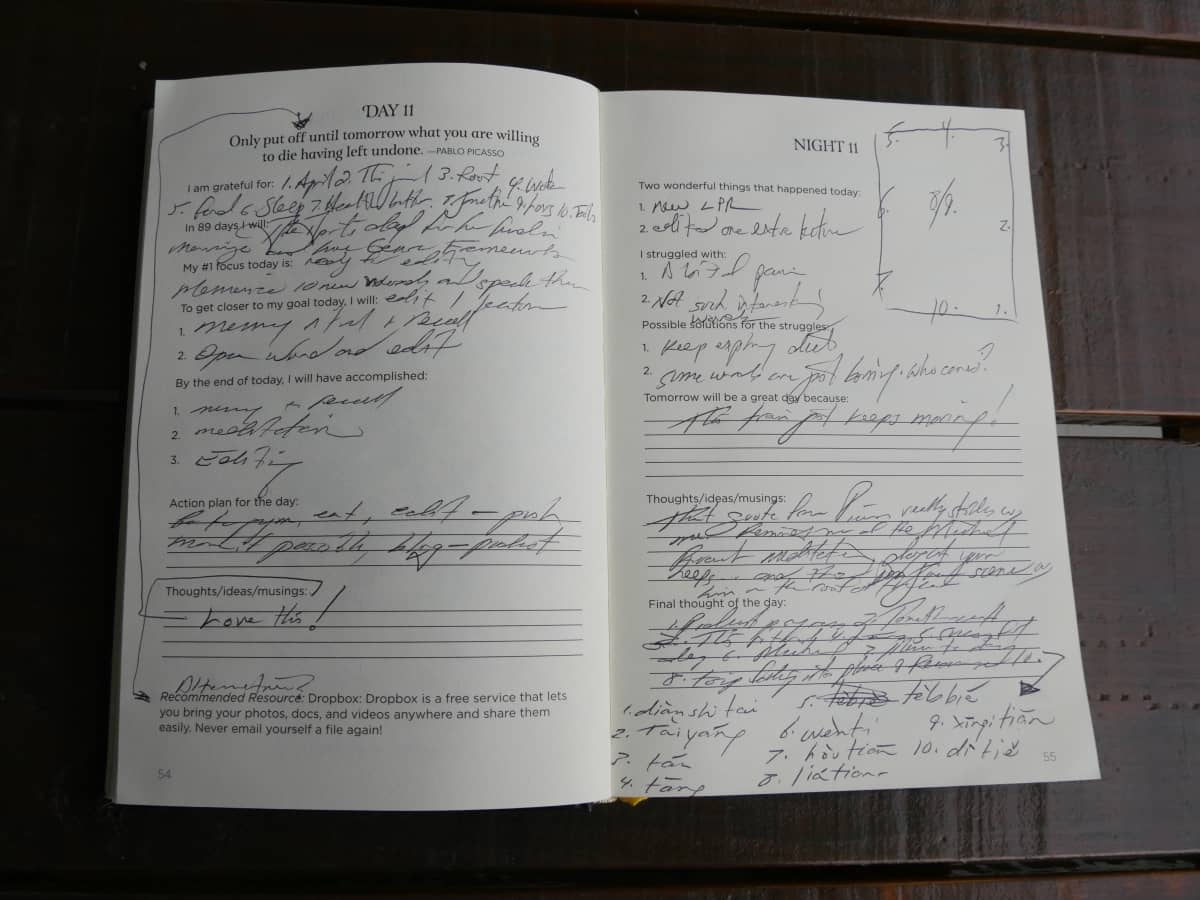
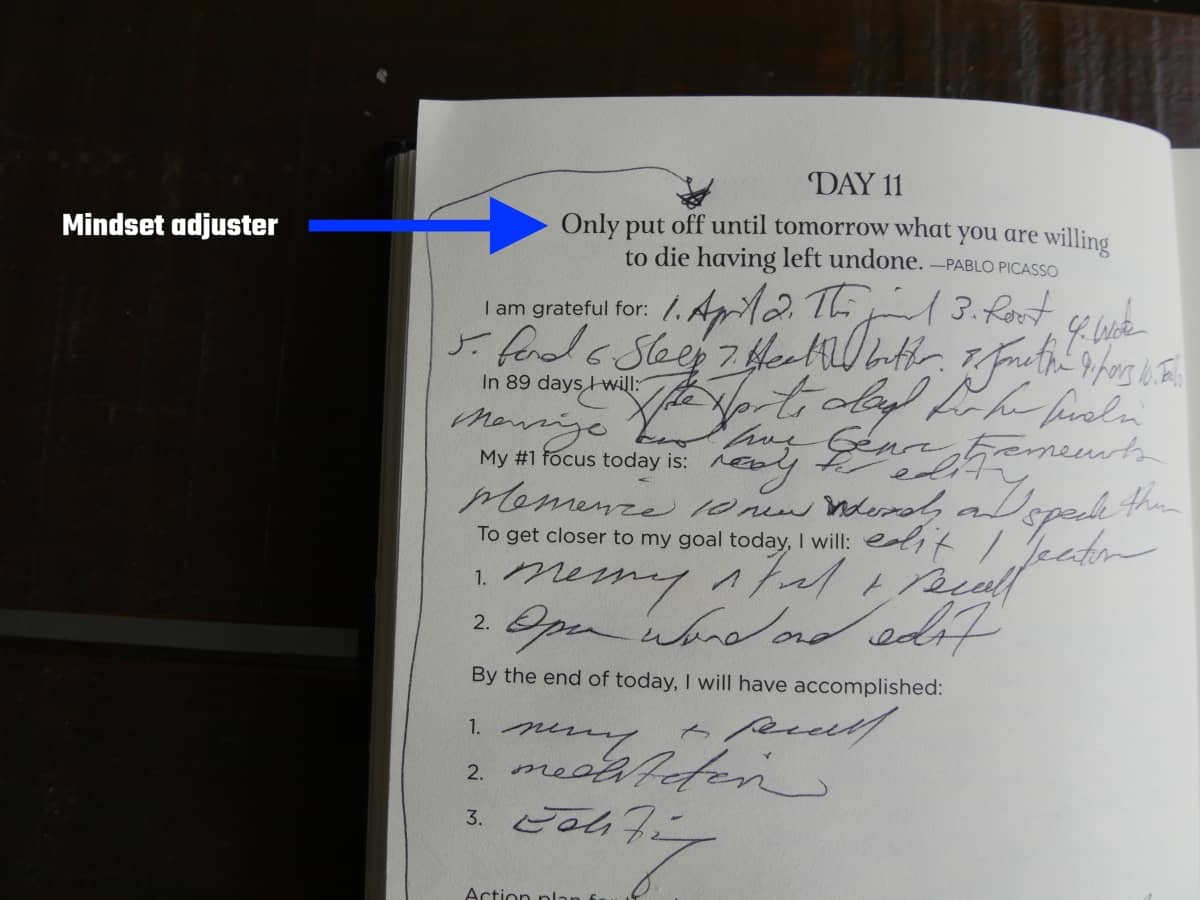
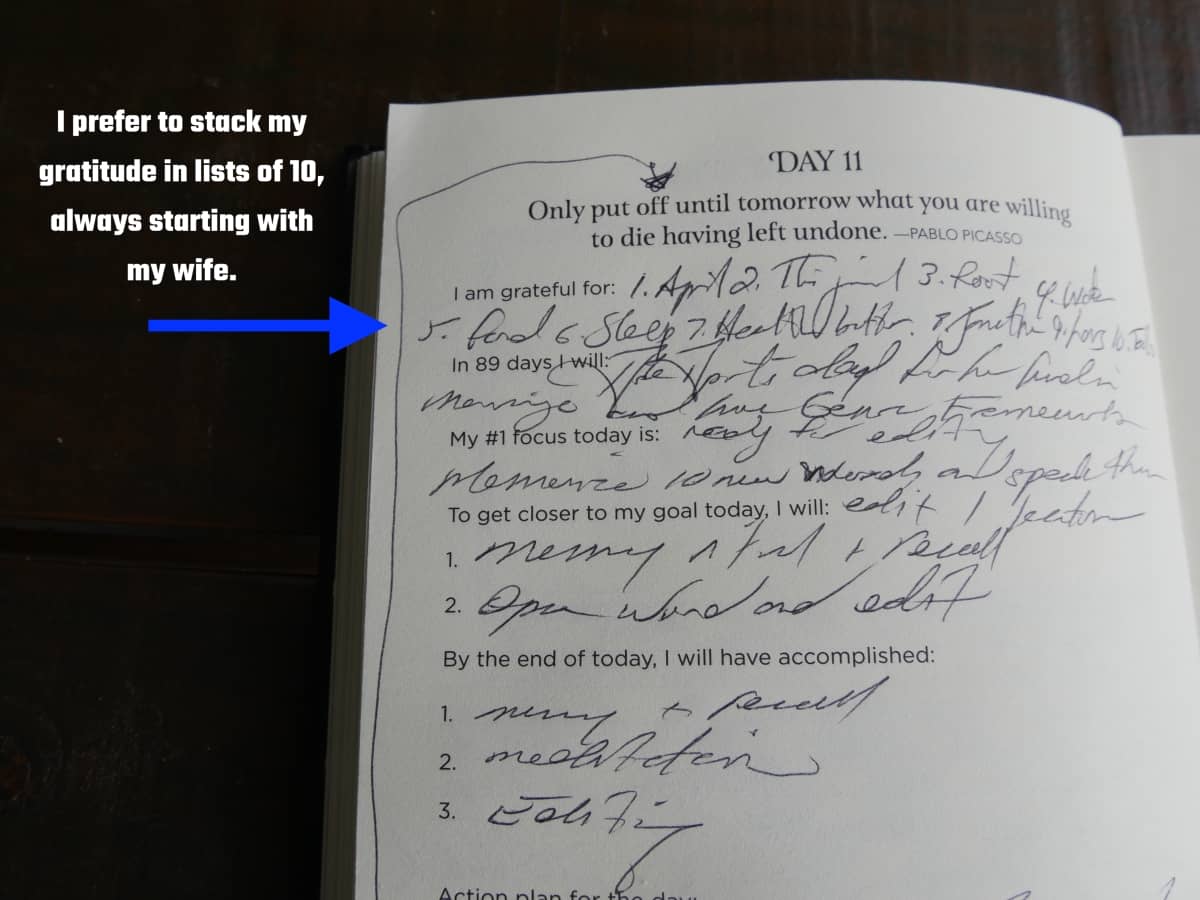
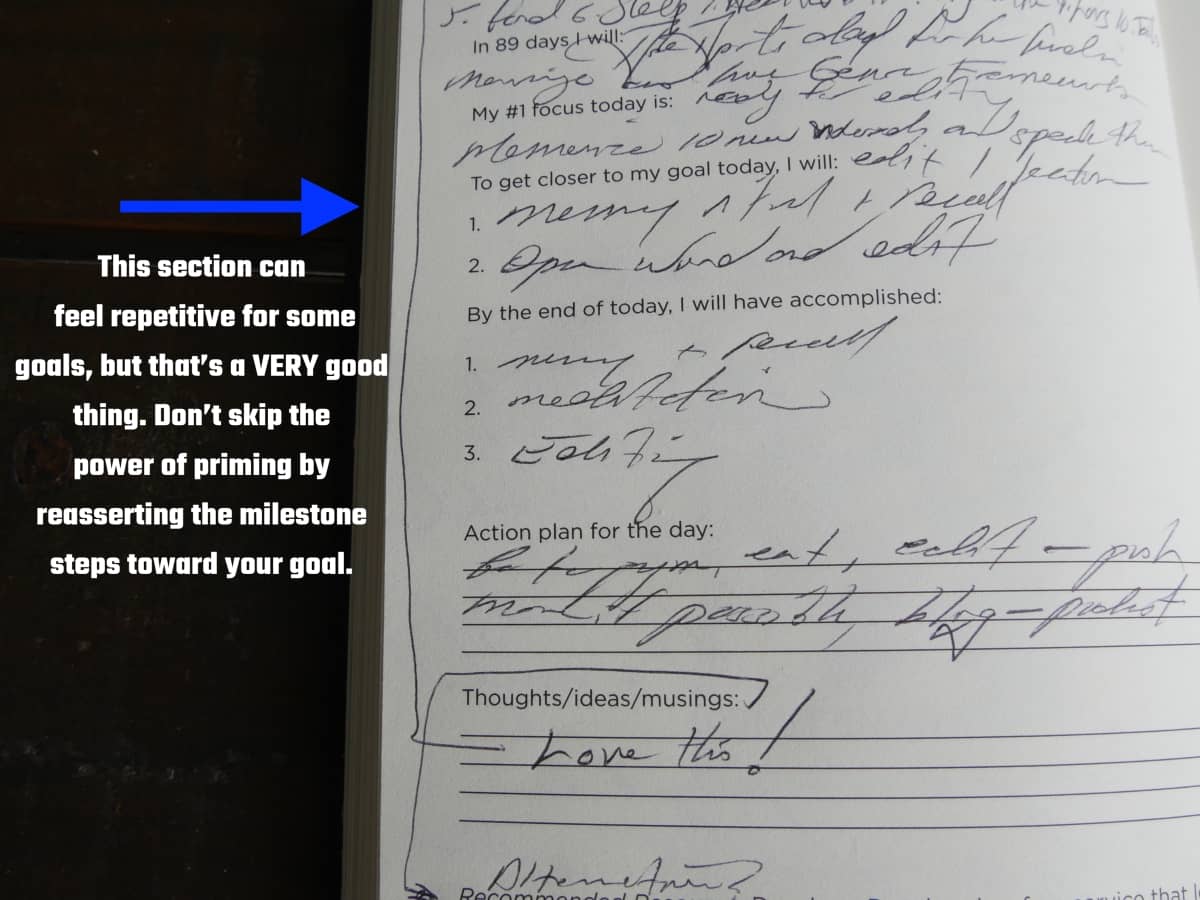
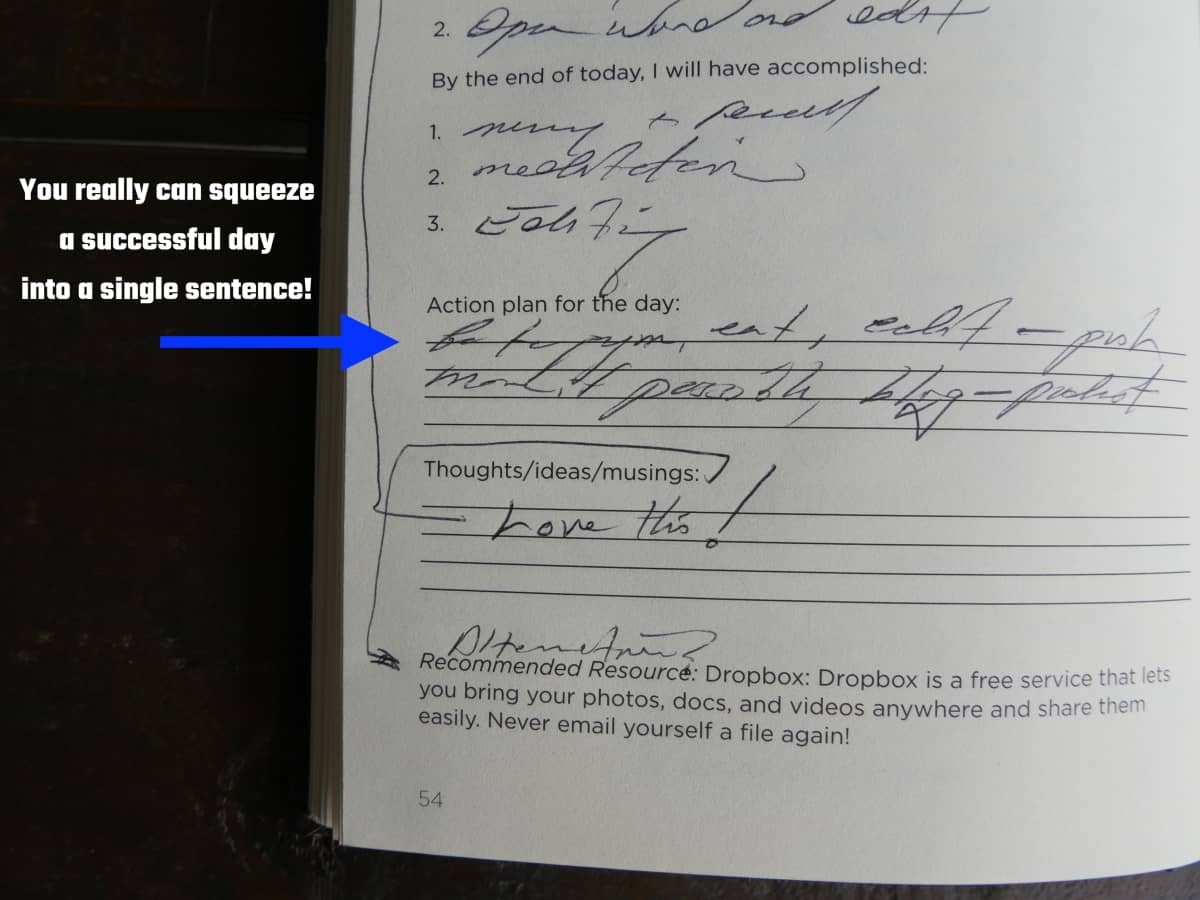
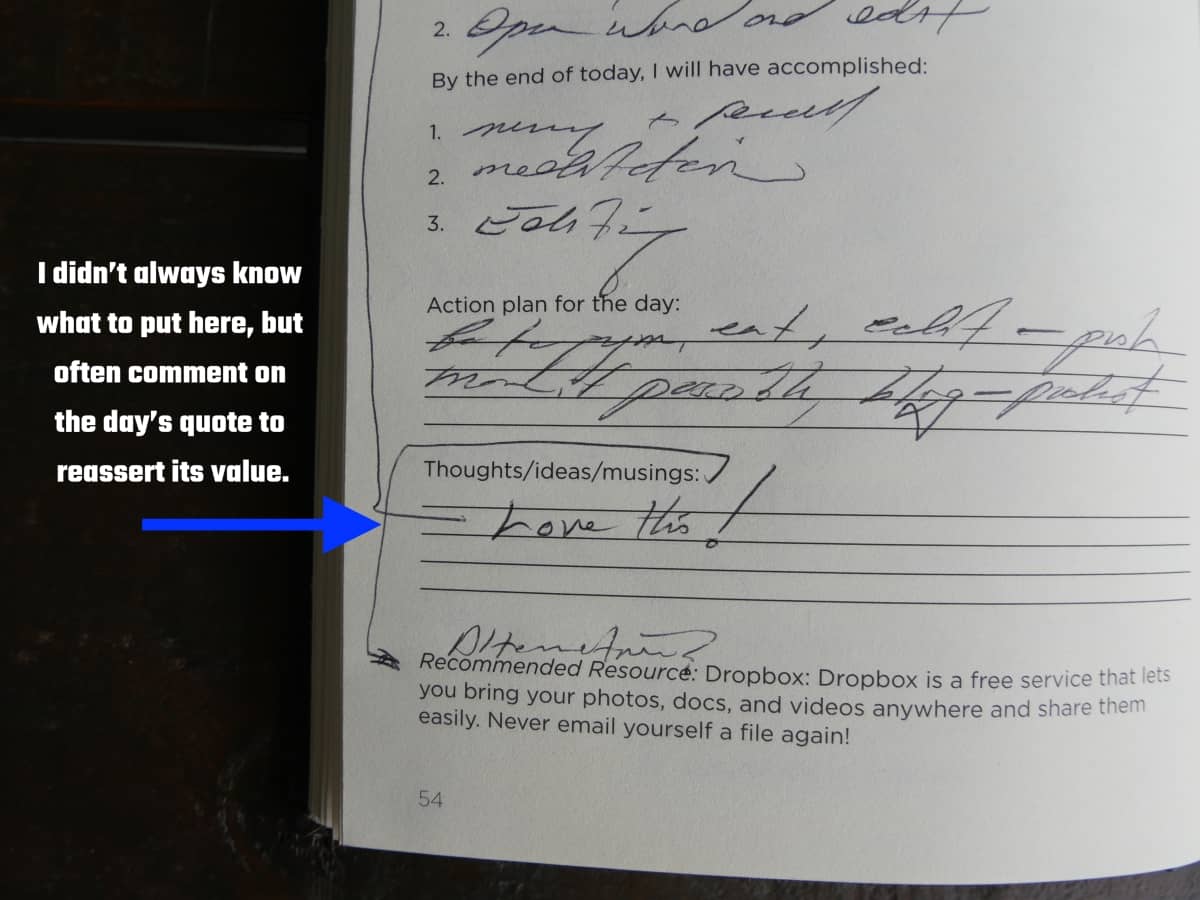
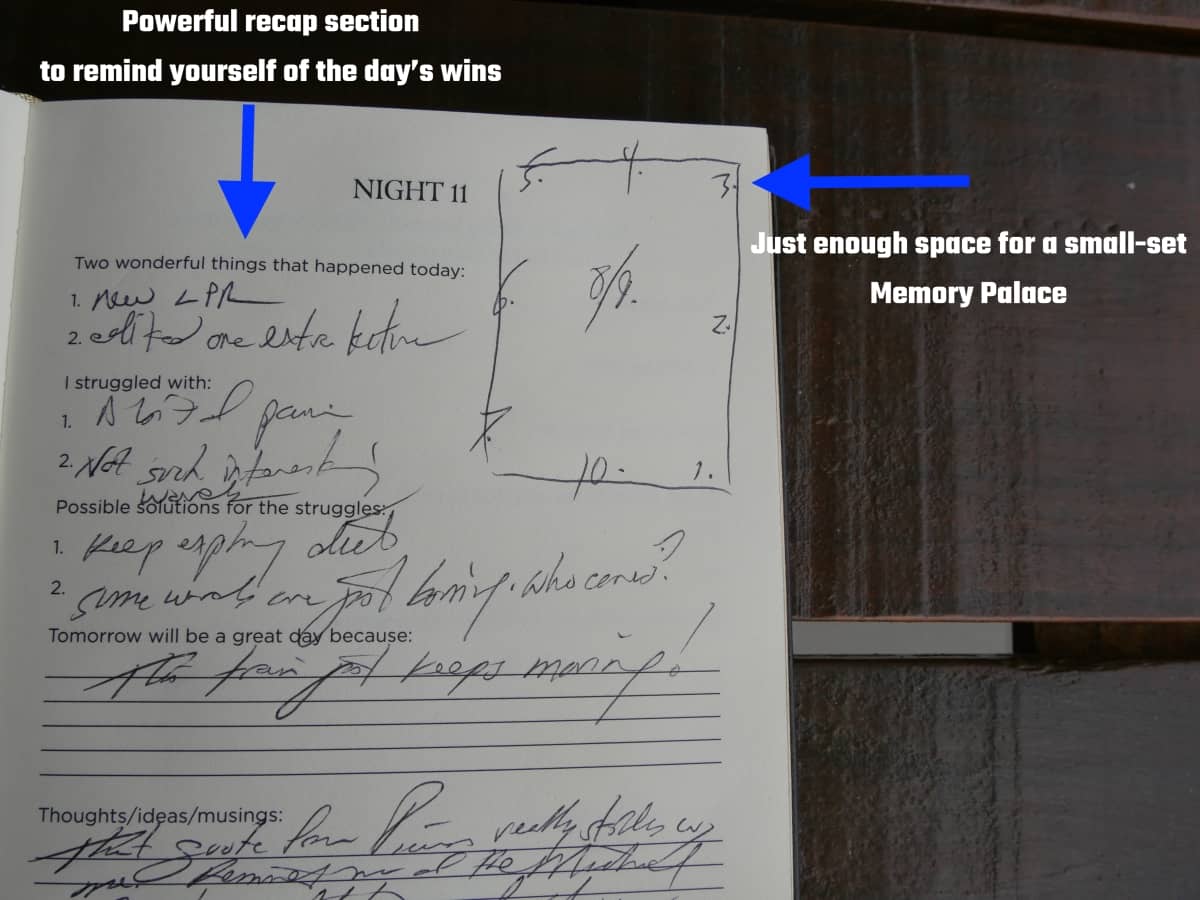
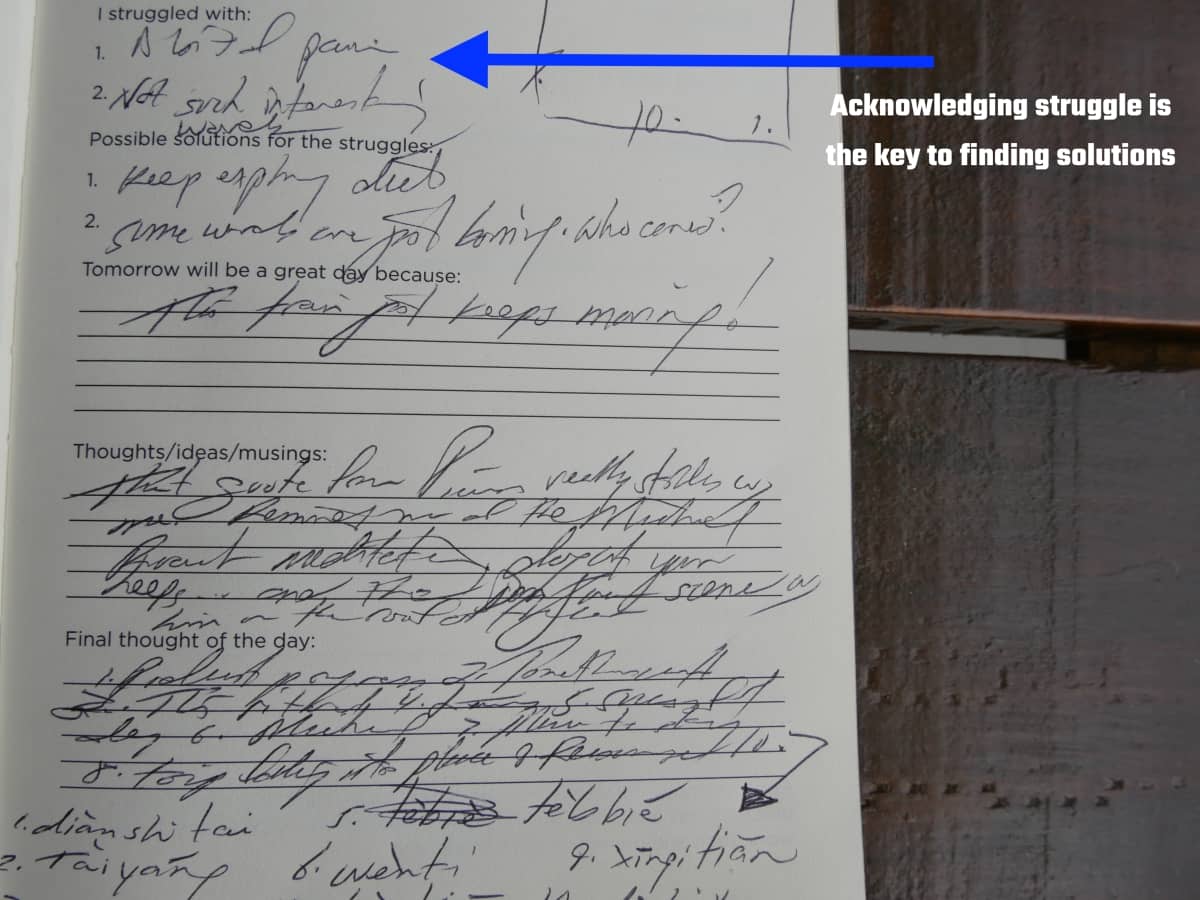
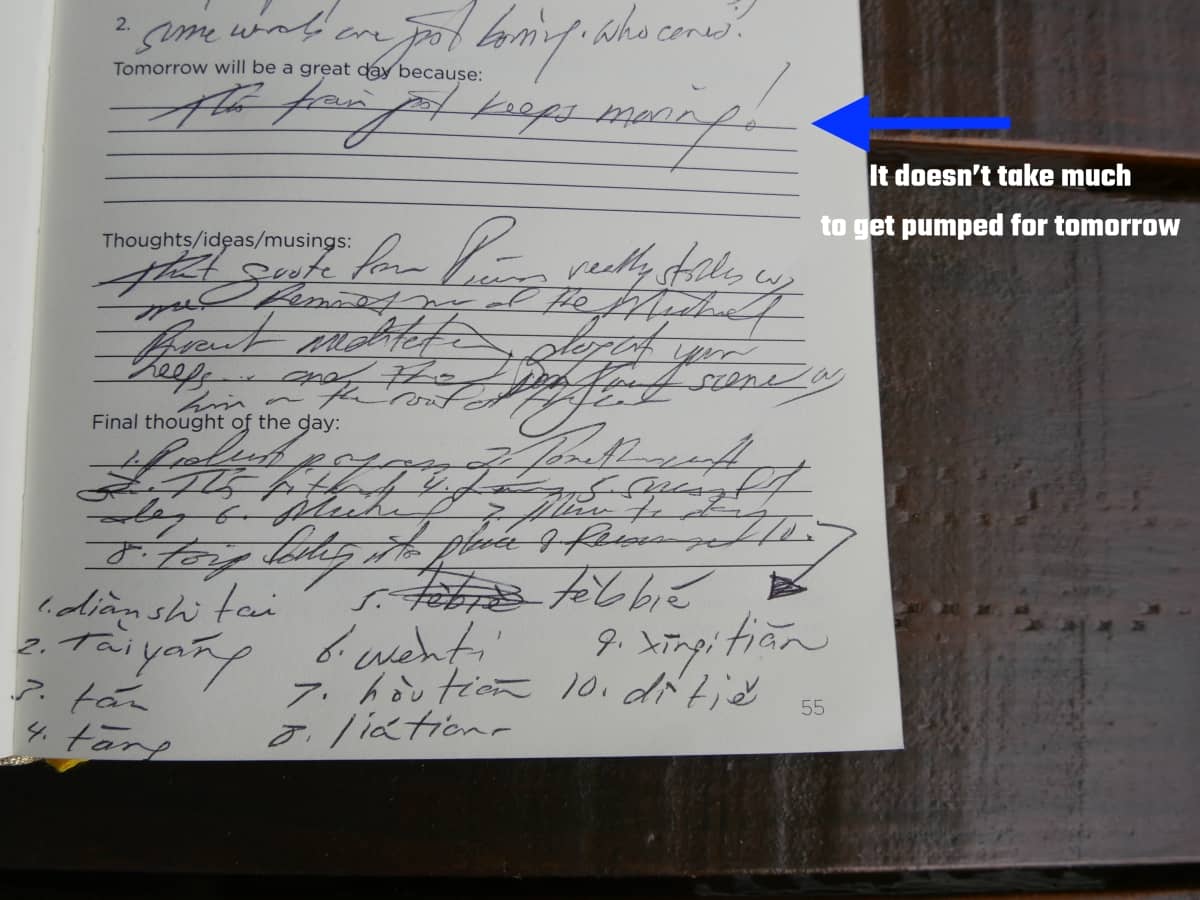
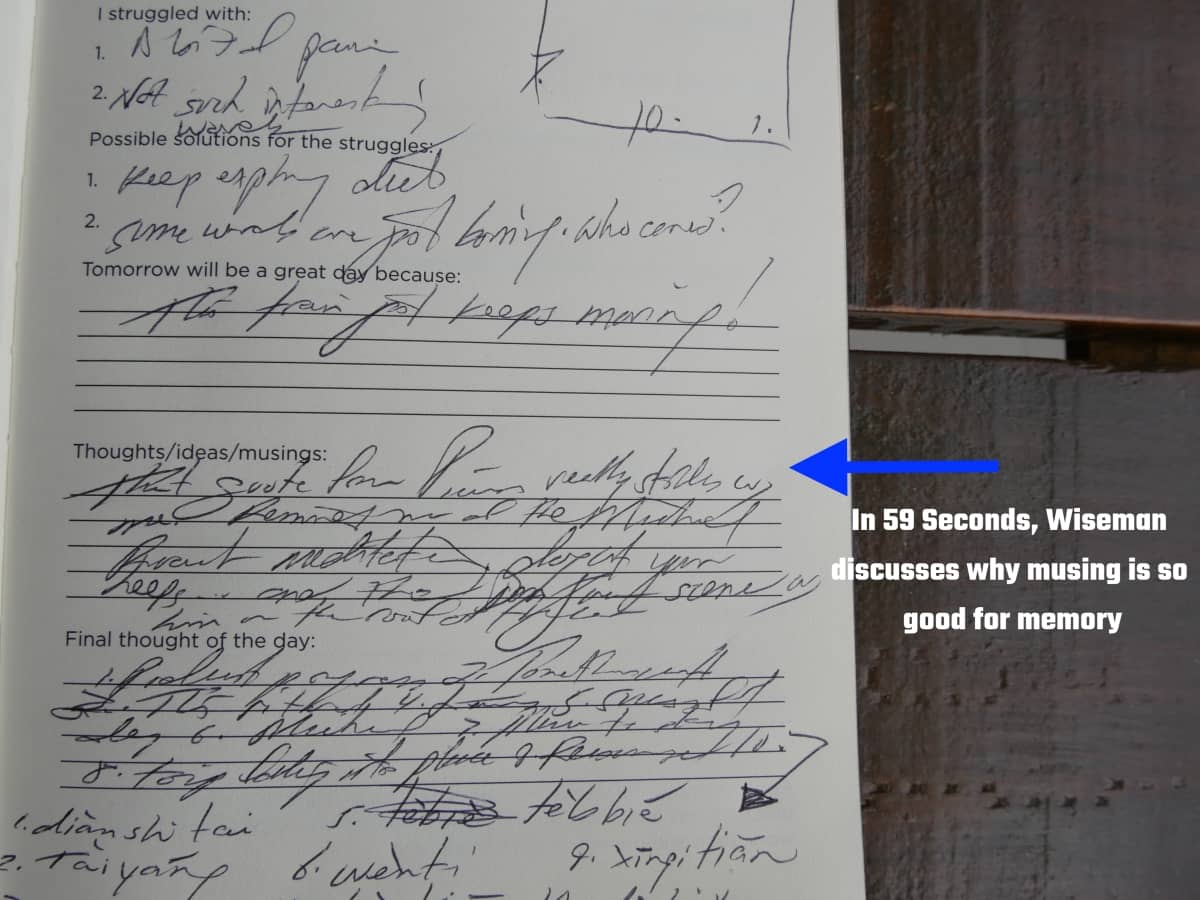
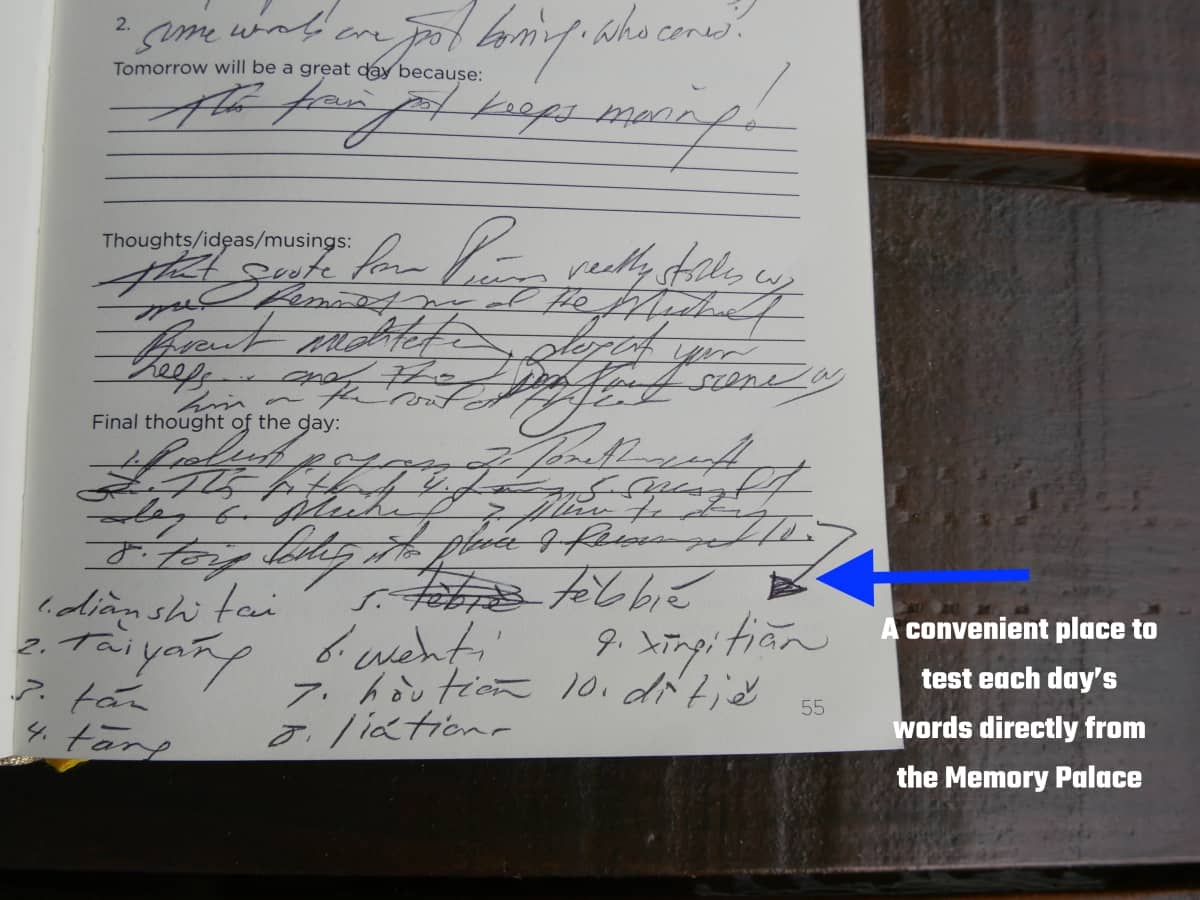
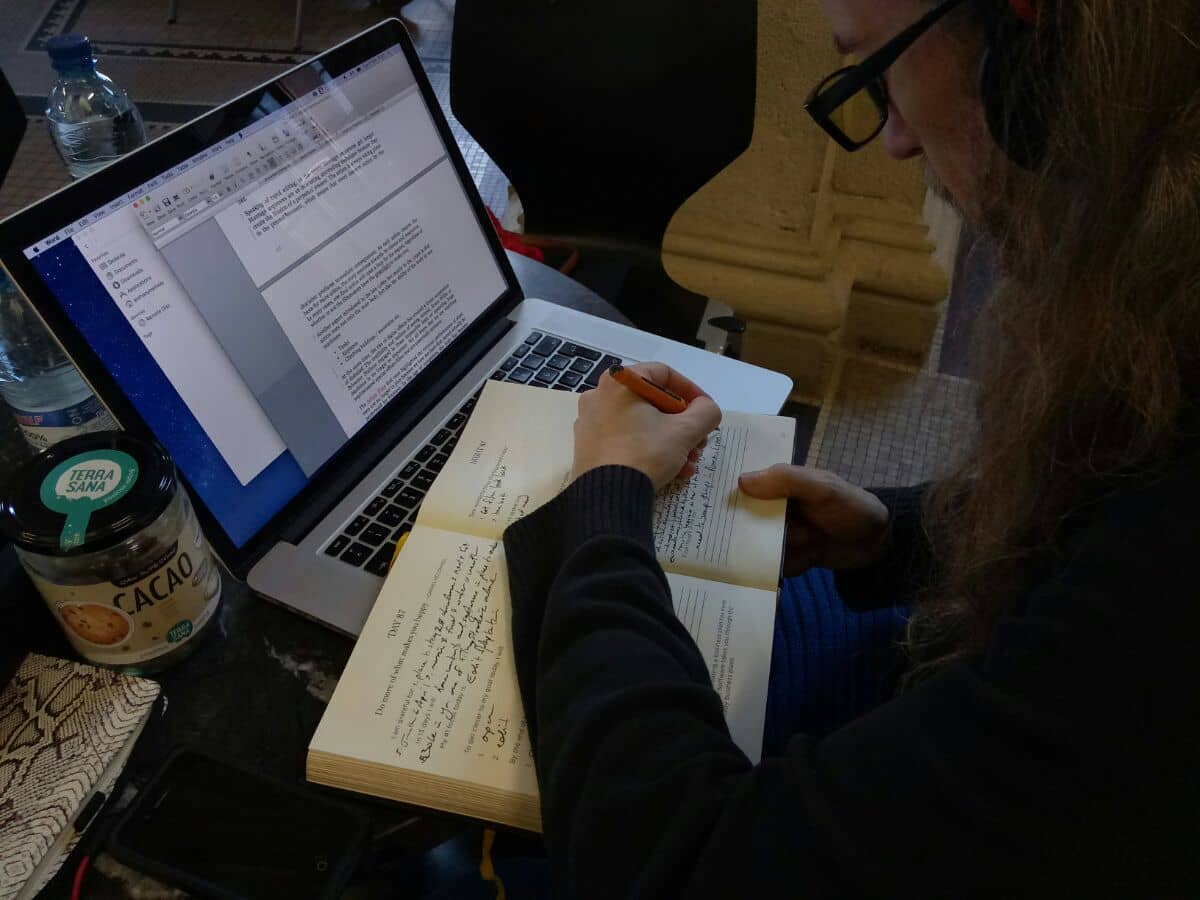
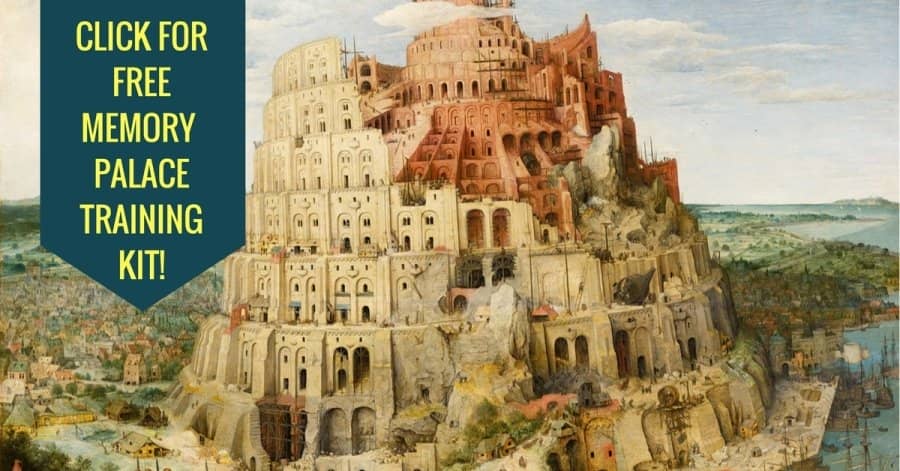



8 Responses
Yes I think it could help me
That’s great to hear, Bryce.
What language (or topic area) are you studying? I’d love to know and maybe there is an additional resource we have for you here on the site tailored for it.
When’s your book on movies coming out?
I guess I’ll have to give your language learning technique a go. Just to try it and see. I haven’t tried memory palaces for language learning as yet.
What would you advise for learning 2 similar languages? I’ve been learning Russian and Croatian for some time. Can’t speak either fluently although not bad at reading them. But get them hopelessly muddled up as they share many similarities.
Thanks for asking about Genre Frameworks, Rosemary. We’re testing the release of the video course version now and may release it near the end of the year. I might prepare the next course and book in the series before going wide with it. That course is on adaptation, particularly books into movies.
Depending on your skills with language learning, two similar languages at the same time could be a blessing or a curse. In terms of the discipline bandwidth, the old phrase probably has to be confronted for its truth: Chase two rabbits, catch neither.
What I would suggest is get to B1 or thereabouts in Russian and then Croatian (or vice versa).
Which brand of Croatian will you be studying? Shtokavian?
If you do want to try both at the same time, there are some videos about doing this in the Masterclass, and some ideas in the FAQ section that I think you’ll find powerful. They are based on individual units of vocabulary, however. I would not expect to memorize entire phrases using these dual language memorization techniques.
But from a pure memory perspective, if you have mnemonics on your side, it’s not only entirely possible to memorize the vocabulary of more than one language at a time. It’s also great brain exercise. 🙂
How about recalling vocabulary in conversation ?
I know many words in English (it’s not my first language) but sometimes in conversation I totally blackout. It’s funny but after conversation I know the words, but it’s too late.
I found this article on why it is difficult to recall vocabulary. What do you think about this case ?
Great questions, Robert.
First, the Magnetic Memory Method trains you to be ready with the words in long term memory so that you’re accessing them from reserve rather than a Memory Palace. The Freedom Journal in combination with mnemonics and The Big Five of Language Learning will help you reach this stage faster and develop a larger reserve to draw upon faster.
Thanks for sharing this article from Bartosz. He writes really well and I’ve long been an admirer of his blog.
Everything he says stands to reason and is basically coherent with brain science.
The two things we need to fill in are:
1) A fun strategy for making all the things the brain needs to remember happen
2) More people finding the fun in mnemonics
The way for that to happen is part of my own quest on this blog and podcast, so thanks for being a part of that journey with your great questions. I look forward to your next post!
Sometimes you need to know how to translate a word FROM a foreign langauge and sometimes INTO a foreign language. Do you keep the words in different memory palaces?
Thanks for this, Frank.
The goal I have for people using the Memory Palace technique is in such a way that the word enters long term memory. Thus, knowledge of the word becomes bidirectional and available faster than you can search for it in a Memory Palace in either direction.
I would suggest using all parts of the Magnetic Memory Method in order to make this happen as quickly as possible, first on a word-by-word basis, then applied to entire phrases.
The exception to the rule (for me personally) is when I’m just learning a cool phrase in another language. I don’t necessarily require myself to know what each and every word means in order to relate its core meaning in English or some other language I might be sharing it in. But I still use the full Magnetic Memory Method to get it into long term memory so that I don’t have to search for that phrase in a Memory Palace when I want to use it.
Does this way of looking at things help you out?